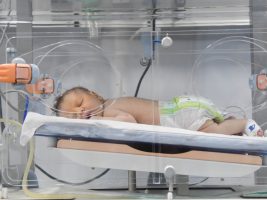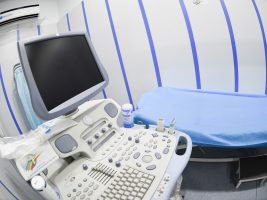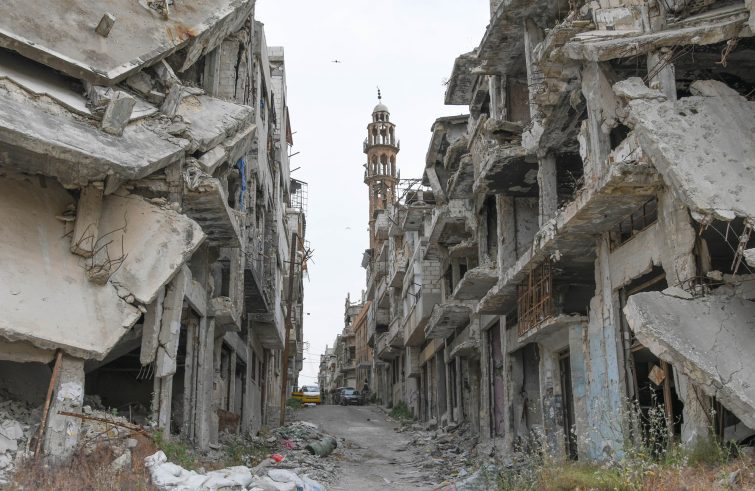
Syria marks ten years of a war which continues to claim lives, even though it no longer makes the headlines. The Syrian conflict is not over, with fighting continuing in parts of northern and northeast Syria.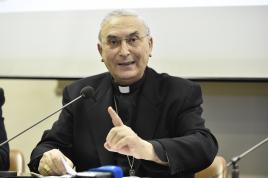 Diplomacy is lagging behind while the population is plunging into despair and extreme poverty, struggling to survive amidst the conflict, sanctions and the COVID-19. SIR interviewed Cardinal Mario Zenari, apostolic nuncio to Syria for the past twelve years.
Diplomacy is lagging behind while the population is plunging into despair and extreme poverty, struggling to survive amidst the conflict, sanctions and the COVID-19. SIR interviewed Cardinal Mario Zenari, apostolic nuncio to Syria for the past twelve years.
The international community did not succeed in solving the conflict ongoing for the past ten years. Is it just a matter of incapacity, impotence or lack of political will?
UN Special Envoy for Syria, Geir O. Pedersen clearly stated that there can be no progress without constructive international diplomacy. The warring parties alone will never succeed, it’s a relentless confrontation. In my opinion, the war in Syria will end when it is settled within the Security Council – the UN body charged with ensuring international peace and security. I cannot forget that over the past years, while I heard bombs falling in areas near Damascus, such as Ghouta, the Security Council was experiencing yet another bitter conflict involving its member countries. Until diatribes and divisions within the Council continue, here we will see no peace. However, I need to mention that there have also been moments, not many, when miracles have occurred and which give us hope …
What are you referring to?
I am thinking of the Day of Fasting and Prayer for Peace in Syria and the Middle East, held on September 7, 2013, convened by Pope Francis. The conflict was at a very critical juncture in the wake of a chemical attack carried out a few days earlier on the outskirts of Damascus. On that occasion, Putin and Obama took up the reins of events and brokered an agreement on Syria’s chemical arsenal. It was a success. Another important landmark was in 2015, when the UN Security Council voted on Resolution 2254, laying down the road map of the peace process for Syria. This shows that if the international community is united, results will follow, even if unexpected.
 Are many of the Security Council’s shortcomings due to the interlocking vetoes of the Great Powers represented therein?
Are many of the Security Council’s shortcomings due to the interlocking vetoes of the Great Powers represented therein?
Indeed. The situation on the ground will progress only with a strong impetus from the international community to enforce the road map of Resolution 2254. In the meantime, an increasingly desperate and poor population is suffering as a result of this deadlock.
On top of the military conflict there is a poverty war and, for the past year, COVID-19. A threefold impact on Syrians. How is the population reacting?
They are exhausted. Many priests and prelates I often talk to have told me that people are now stealing even the scant linen left out in the sun to dry, they steal car batteries and agricultural tools to generate electricity. The dramatic devaluation of the Syrian lira is making people poorer by the day. The situation is unsustainable and after 10 years of war a solution needs to be found.
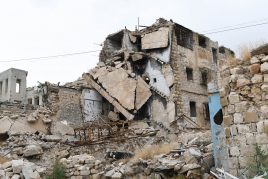 Is there any point in talking about reconstruction today?
Is there any point in talking about reconstruction today?
I arrived in Syria exactly 12 years ago. It was a completely different situation compared to today. Syria today is like the poor traveller in the parable of the Good Samaritan, beaten, robbed by thieves and left nearly dead beside the road. Today’s Syria has been humiliated by the thieves who plundered it. The help of so many Samaritans, individual benefactors as well as humanitarian agencies and international organisations, offering aid to the Syrian people, was providential. But that is emergency aid for a moribund Syria that needs to get back on its feet. It needs to regain its dignity. Getting it back on its feet means rebuilding. Rebuilding the social fabric and infrastructures – schools, roads, houses, hospitals, industries. But unfortunately everything is stalled, not least because of corruption and sanctions.
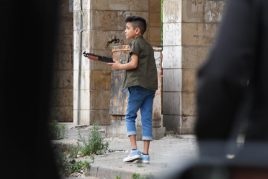 The Syrian bishops, together with Caritas Internationalis and Aid to the Church in Need, have long been calling for the lifting of sanctions. Could this help restore some dignity to the suffering Syrian people?
The Syrian bishops, together with Caritas Internationalis and Aid to the Church in Need, have long been calling for the lifting of sanctions. Could this help restore some dignity to the suffering Syrian people?
We have attempted to take steps in this direction. EU sanctions are different from those imposed by the US, which came into force in June last year, known as the Caesar Syria Civilian Protection Act. According to the officials in charge, these sanctions don’t apply to humanitarian aid, which is true. However, they involve a complex mechanism that eventually causes disruption: some people interpret the sanctions in a narrow way, others are afraid to run risks and don’t trust financial transactions. So although the sanctions don’t affect humanitarian relief, in reality they create numerous problems. If instead of engaging in hostile confrontation, as previously mentioned, the warring parties made a few gestures of goodwill, the sanctions would be lifted. The Pope referred to the sanctions in connection with the pandemic some time ago. Easing the sanctions would provide States with the resources to respond to the pandemic and provide treatment for their populations. In Syria, the oil embargo has a major impact.
Ten years of war that has been fuelled by interference of regional and international players as well as by the supply of weapons. Pope Francis’ question, ‘who sells weapons to the terrorists…?’, is of great topical concern especially for Syria, but it remains unanswered…
All the weapons supplied to the terrorists, to ISIS, involve responsibilities that sooner or later will have to be ascertained. There was a flourishing market not far from Syria, where automatic firearms, including machine guns which spread destruction and death throughout the region, could be freely purchased.
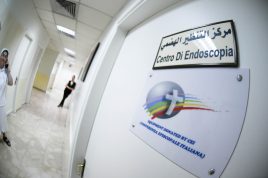 Your Eminence, you have been the promoter of the “Open Hospitals” project launched in 2017 under the auspices of the Dicastery for Integral Human Development and implemented with AVSI, in conjunction with the Italian Bishops’ Conference, Cor Unum, the Papal Foundation, the Gemelli Foundation and other partners. Its goal is to strengthen the operational capacity and the quality of care of three Catholic non-profit hospitals, the Italian and French ones in Damascus and the St. Louis hospital in Aleppo, to ensure free treatment for all the victims of the war, including the poorest. What is your assessment of the past three years?
Your Eminence, you have been the promoter of the “Open Hospitals” project launched in 2017 under the auspices of the Dicastery for Integral Human Development and implemented with AVSI, in conjunction with the Italian Bishops’ Conference, Cor Unum, the Papal Foundation, the Gemelli Foundation and other partners. Its goal is to strengthen the operational capacity and the quality of care of three Catholic non-profit hospitals, the Italian and French ones in Damascus and the St. Louis hospital in Aleppo, to ensure free treatment for all the victims of the war, including the poorest. What is your assessment of the past three years?
This project is supported by many good Samaritans and seeks to provide practical responses to the medical needs of impoverished Syrians, most of them Muslims. An estimated 90% of the Syrian population is living below the poverty line. Over 40,000 patients received medical care by the end of 2020, the COVID pandemic prevented us from reaching the target of 50,000. But we will persevere and continue treating all those in need. For this we rely on the generosity of many ‘Samaritans’. I would like to add one more thing…
Please do…
Syria’s natural environment is deteriorating. A countless amount of explosives has fallen on Syrian soil over the past ten years, contaminating the land, air and water. There will be long-term consequences from all this, although the first effects are already evident with the increase in cancer-related diseases, including among children. I have no medical knowledge to judge but these explosives will certainly leave a trail of illnesses. The war is bound to leave whole generations of psychologically damaged people traumatised by bombs and violence. The poor people’s souls will also require deep healing. That’s why hospitals must be rebuilt and reopened. Half of Syria’s hospitals were destroyed by the war. The ‘Open Hospitals’ project is very important because by ensuring healthcare for the wounded and sick, by caring for the individual, we are trying to mend the wounds of a community that was shattered and damaged by the war. The people who received medical treatment are immensely grateful. This can be seen also in the numerous projects of the local church, in its various expressions, which now more than ever embodies the image of the ‘field hospital’ often recalled by Pope Francis.
- foto SIR/Marco Calvarese
- foto SIR/Marco Calvarese
- foto SIR/Marco Calvarese
What is your reading of Pope Francis’ visit to Iraq? Many of the Pope’s messages appeared to be addressed to Syria…
It was moving, it was unique and new. It was a great joy to see the preparations made by these small communities to welcome the Holy Father, the way the Pope experienced those moments. I believe that Pope Francis has been inspired for this visit to the Land of Abraham.


